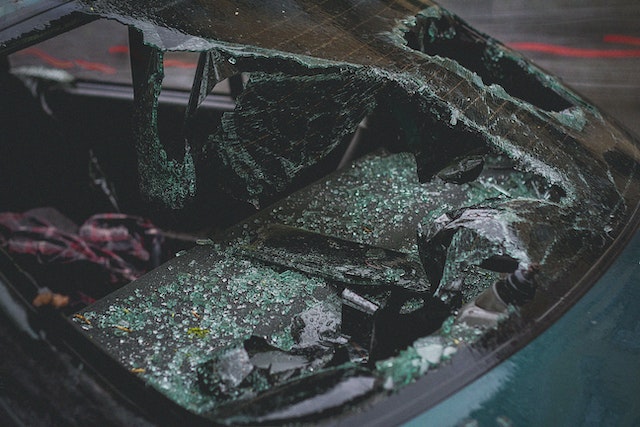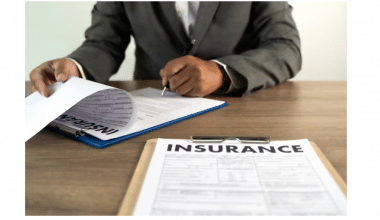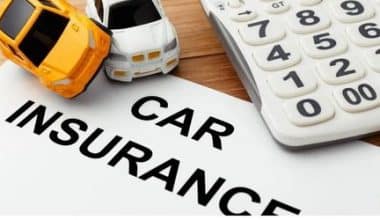One of the biggest concerns for victims of hit-and-run accidents is whether it will raise their insurance rates. After all, even if they were not at fault for the accident, they are still filing a claim with their insurance company.
The good news is that, in most cases, your insurance company will not raise your rates after a hit-and-run accident. This is because insurance companies understand that hit-and-run accidents are not the victim’s fault. However, there are a few exceptions to this rule.
The rule mostly depends on your insurer and state.
Let’s review these exceptions and tips on protecting your rights and getting the compensation you deserve from your insurance company after a hit-and-run accident.
Will a Hit and Run Raise Insurance?
This is determined by your insurer and state. If you were not at fault, your premium may not increase in some cases. In other cases, any accident can result in an increase in rates, even if the other driver was clearly at fault.
How Does Insurance Handle a Hit-And-Run?
There are two types of insurance coverage for hit-and-run accidents: property damage coverage and bodily injury coverage. Depending on the coverage you have, your auto insurance may cover a hit-and-run.
#1. Property Damage Coverage
Collision:
Collision coverage protects you from any physical damage to your car caused by an impact with another vehicle or a stationary object, regardless of fault. After you pay your deductible, collision will help cover the cost of repairing or replacing your vehicle if it is damaged in a hit-and-run. Collision coverage is optional, but if you have a car loan or lease, your lender will most likely require it.
Uninsured Motorist Property Damage (UMPD):
A driver who flees the scene of an accident is considered “uninsured” by your insurance company in most states. If you don’t have collision coverage, consider UMPD for damage to your vehicle caused by a hit-and-run. UMPD coverage is required in some states, available in others (but not all), and reasonably priced to add to your policy. UMPD coverage usually comes with a deductible that you must pay out of pocket.
About UMPD coverage
It should be noted that in some states, UMPD coverage requires contact with the vehicle involved in the hit-and-run. Assume a car in front of you on the highway moves into your lane without looking, causing you to swerve and collide with a barrier. Depending on your state’s rules, UMPD coverage may not apply if you never came into contact with the responsible vehicle.
Before UMPD can cover a hit-and-run accident, some states require the at-fault driver to be identified. In those states, collision coverage would cover the hit-and-run regardless of whether the driver was identified.
Physical damage to your car in a hit-and-run accident will not be covered if you do not have collision or uninsured motorist property damage (UMPD) coverage. Finding the driver who caused the accident will be your only hope for compensation.
According to the Insurance Information Institute, nearly one-third of all drivers in the United States are uninsured.
#2. Bodily Injury Coverages
Uninsured Motorist Bodily Injury (UMBI):
UMBI covers injuries sustained in an accident caused by an uninsured driver, including hit-and-run situations where drivers are considered “uninsured,” depending on the state.
Medical Payments (Med Pay) Or Personal Injury Protection (PIP):
These coverages apply regardless of who is at fault in an accident and can be used in the case of a hit-and-run. Injuries would be covered by medical payments or personal injury protection (PIP), which may include a deductible. PIP may also cover income replacement, funeral expenses, and rehabilitation costs. The availability of coverage will vary by state; for example, PIP is required in some states but not in others.
If you don’t have health insurance, UMBI and, depending on your state, PIP or medical payments coverage can help pay for costly medical bills. They can also assist you in paying for medical expenses that your health insurance does not cover. If you choose not to carry these coverages, your car insurance policy will not cover your injuries in the event of a hit-and-run.
What Should I Do if I Am Involved in a Hit-And-Run?
#1. Examine the Situation
It is not always possible to identify the driver or vehicle involved in a hit-and-run. Don’t chase the other car if you see it speeding away. The health and safety of you and your passengers should be your top priority. Pull over, check on everyone, and assess the damage to your vehicle. Call 911 if anyone is seriously injured.
#2. Call the Cops
If everyone is safe, call the police immediately and file an accident report within 24 hours of the incident or discovering the damage; this can help the claims process go smoothly and assist the authorities in determining the cause of the hit-and-run. Tell the cops about any identifying details you remember, such as the license plate, make, or model of the other car. The police might be able to find the at-fault driver.
#3. Speak with Witnesses
Check to see if the incident was captured on camera or if there were any eyewitnesses who can tell the police what they saw. These may be your only options if your parked car was damaged in a lot while you were not present. If the driver is identified and properly insured, their insurance should cover your damages and injuries.
#4. Inform your Insurance Company
Finally, regardless of whether you intend to file a claim for the hit-and-run, notify your insurance company as soon as possible. You can begin documenting damages and injuries at the scene of the accident if you can do so safely. Even if your injuries develop after the scene of the hit-and-run, you should continue to document them and seek medical attention as needed.
Remember that you have no control over the actions of others, but you do have control over the coverages on your policy. If you’re concerned that you’re not adequately protected against hit-and-run accidents, call us at 1-866-749-7436 or get a free online car insurance quote.
What Is the Procedure for Filing a Hit-And-Run Insurance Claim?
The decision to file a claim for a hit-and-run accident is dependent on the circumstances and your insurance coverage. They include the following:
- If you file a claim for injuries under UMBI, you will most likely not have to pay a deductible.
- If you live in a state that provides PIP, you may have a deductible, but your personal injury medical costs may far exceed your deductible; if so, filing the claim may still make sense.
- If you file a collision claim for hit-and-run damage to your vehicle, you’ll have to pay a deductible, so get a repair quote and make sure the costs exceed your deductible before filing a claim.
- If you don’t have collision coverage and live in a state where you can file a UMPD claim, a deductible will almost certainly apply.
If you learn any new information about the other driver, notify your insurer. If the responsible driver is identified, your insurer can instead file a third-party claim against that driver's liability coverage, potentially saving you the cost of filing a claim through your insurance.
Does Insurance Cover a Hit-And-Run?
If you have the proper coverage, your insurance will cover you for a hit-and-run. Basic policies may not cover you in the event of a hit-and-run. You may have to pay for damages out of pocket in this case.
Speak with your insurer if you are unsure whether you have hit-and-run coverage. You most likely do, but it’s a good idea to double-check just in case.
What Effect Does a Hit-and-Run Have on Insurance?
The impact of a hit-and-run on your insurance depends on the circumstances. If the driver who caused the damage to your vehicle cannot be identified, your collision insurance will cover your claim. Your insurer requires the deductible.
If you can identify the driver, the loss may be covered by your policy’s direct compensation property damage (DCPD) section. Typically, there is no deductible. This is why having witnesses can be advantageous. Identifying the culprit can save you money on the deductible. You can also hold them accountable for the damage.
Uninsured motorist coverage will apply if the driver is identified but not insured. All policies cover this.
Is My Insurance Going to Cover Hit-And-Run Damage if I’m the Driver?
You will face serious consequences if you hit another vehicle and then flee the scene. Your insurer may not cover you depending on the circumstances. You will have to pay a deductible if they do cover you. Your expenses will also rise. Insurance companies may decide not to renew your car insurance.
You could also face a $2,000 fine and up to six months in jail. If you injure others and flee the scene, the penalties are more severe.
How to File an Insurance Claim for a Hit-and-Run
Filing a hit and run claim is the same as filing any other type of car insurance claim. After filing a police report, contact your insurer to file a claim. For the hit and run to be considered a hit and run, most insurers require you to file a police report within 24 hours of the incident. Give them the specifics of the collision. Work with your insurance company to come up with a hit-and-run settlement for your vehicle’s repairs.
Do Insurance Companies Look into Hit-and-Run Accidents?
Yes. Your insurer will investigate the hit-and-run accident in the same way that they do all other types of car accidents. To determine fault, they will conduct an investigation separate from the police report.
Is a hit-and-run in a parking lot covered by insurance?
Yes, you can file a claim for damages if your vehicle was hit by another car in a parking lot accident.
Is a Hit and Run No-Fault for Insurance?
Yes. Hit-and-run accidents are covered by no-fault insurance. You will not be held liable if you are hit by another vehicle that flees the scene. However, you may still be obligated to pay your deductible.
Is it Possible to File a Hit-and-Run Claim Without a Police Report?
A hit-and-run is a serious crime. You should immediately contact the police to file a report. When assessing your claim, your insurer will rely heavily on the police report.
- Cheapest No Down Payment Car Insurance In 2023
- COLLISION INSURANCE: Meaning & Coverages
- BASIC CAR INSURANCE: TYPES AND HOW IT WORKS





